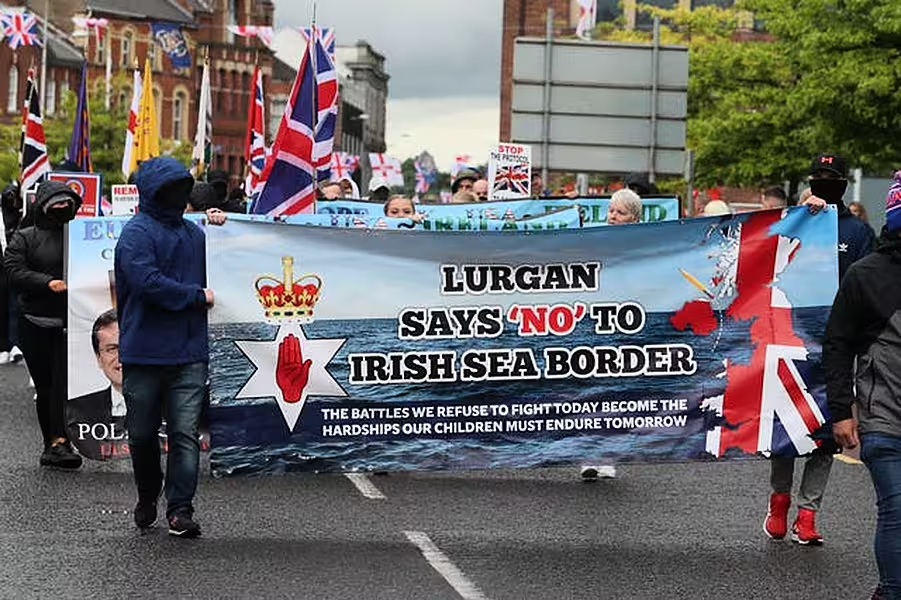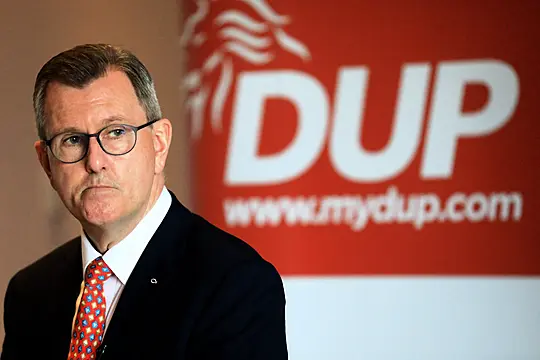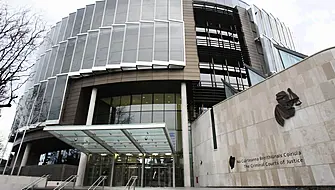Northern Ireland’s relationships with Great Britain and the Republic have been damaged by the Brexit protocol, DUP leader Sir Jeffrey Donaldson has said.
In his first interview as leader, Mr Donaldson called on British prime minister Boris Johnson to recognise the protocol has harmed Northern Ireland’s constitutional position in the United Kingdom.
He said there will be “opportunities going forward” from the protocol, which grants the North access to UK and EU markets, but they cannot be accessed yet because of “unnecessary barriers” created by the Irish Sea border.
He told Sky News on Sunday: “At the heart of the Belfast or Good Friday Agreement are our three sets of relationships, and there’s a very delicate balance within that agreement as to how those relationships are managed.
“One of the key relationships is that between Northern Ireland and Great Britain.
“The agreement is very clear. The principle of consent protects the rights of the people of Northern Ireland to determine their constitutional status.
“When you harm one of those relationships, you harm all of them by extension.
“That’s exactly what we’ve seen happening because our relationship with Great Britain has been harmed by this protocol.
“So too our relationship with the Republic of Ireland has been harmed, and indeed it has undermined and destabilised relationships within Northern Ireland itself.
“We’ve seen that even on our streets. So it is imperative for all of us that we resolve these issues.”

The protocol is deeply unpopular with unionist and loyalists as it creates a trade border between the North and Britain and means EU rules governing trade in goods still apply in the region.
Asked why protesting loyalists should trust Mr Johnson to deliver on the issue, after he negotiated and signed up to the protocol, Mr Donaldson said the prime minister should be given a “second chance”.
“I understand their scepticism, I really do. We’ve heard the Prime Minister, even in recent weeks, talk about addressing the issues and the problems created by the protocol,” he said.
“We’ve heard him recognise that there are difficulties in terms of the relationship between Great Britain and Northern Ireland, but not just in trading terms.
“The Prime Minister also needs to recognise that this impacts on our constitutional position.
“I’m prepared always to give people a second chance. I’m prepared to give the Prime Minister an opportunity now to put right what was done wrong to Northern Ireland under the protocol.”
He said if the issues stemming from the protocol can be resolved, “opportunities will flow”.
“I believe there are opportunities going forward. But we can’t get to those opportunities because of these unnecessary barriers.
“Much of our supply chain comes from Great Britain, whether you are a consumer buying goods in the supermarket or a business relying on component parts for your manufacturing process.
“We need to fix that supply chain problem. We need to restore Northern Ireland’s place within the UK, both the market and constitutionally.
“If we can do that, then yes, we will see the opportunities that will flow, provided we can find practical solutions.”
Minister for Foreign Affairs Simon Coveney has criticised the British Government for failing to acknowledge concessions given on the protocol this week.
On Wednesday the EU announced a number of solutions to ease the implementation of the protocol.
Following a request from the British Government, it extended the grace period on chilled meats entering Northern Ireland from the UK, averting the so-called “sausage war” trade dispute, at least temporarily.
The EU also changed its rules to allow medicines to continue to flow from the UK into Northern Ireland and waived the obligation to show the motor insurance green card for drivers from the UK.
Despite this, UK Cabinet ministers turned up their rhetoric in a bid to push Brussels into further concessions by warning of possible disruption to peace in the region.
In a joint article in the Irish Times on Saturday, Brexit minister Lord Frost and Northern Ireland Secretary Brandon Lewis said the extension of the grace period on chilled meats was “welcome” but added that it “addresses only a small part of the underlying problem”.

They warned the deal risks “damage” to the Good Friday Agreement, which in 1998 helped to secure peace after decades of sectarian violence in Northern Ireland, unless a “new balance” is found in terms of customs checks.
Addressing that letter, Mr Coveney said “it’s a very strange way to make friends and build a partnership” in a week when the EU had offered concessions.
He told RTÉ’s This Week: “This is a week when the EU has moved, has shown generosity, has responded to requests from the British Government and from leaders in Northern Ireland.
“And at the same time, the British Government shows no generosity at all, in terms of even acknowledging that there were advances this week that could build trust and relationships.”







